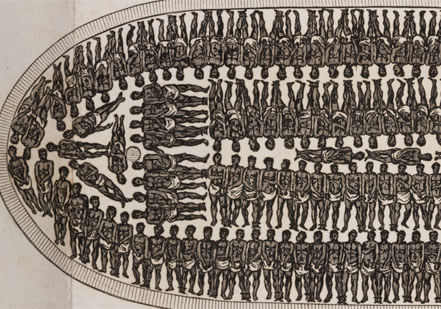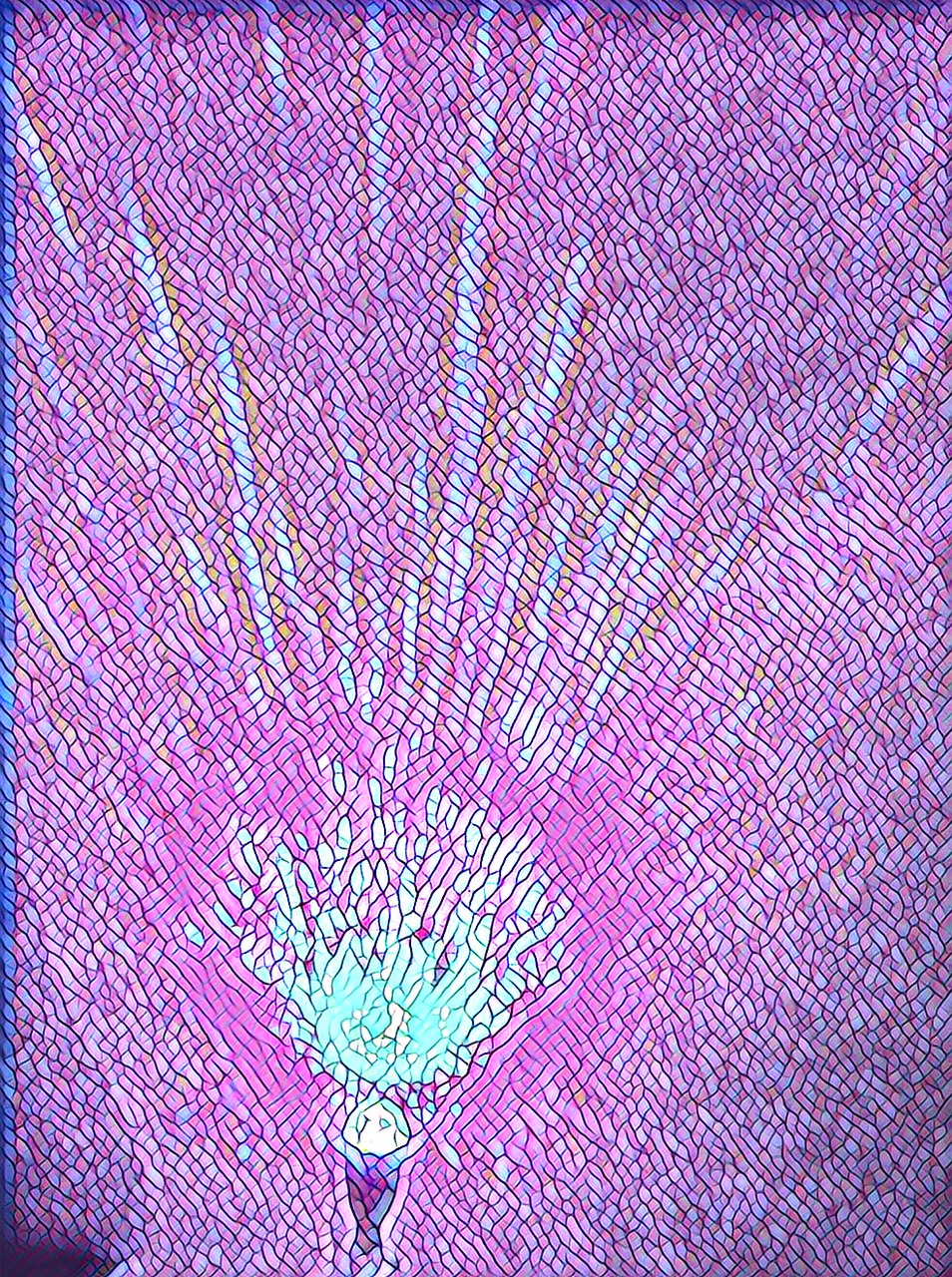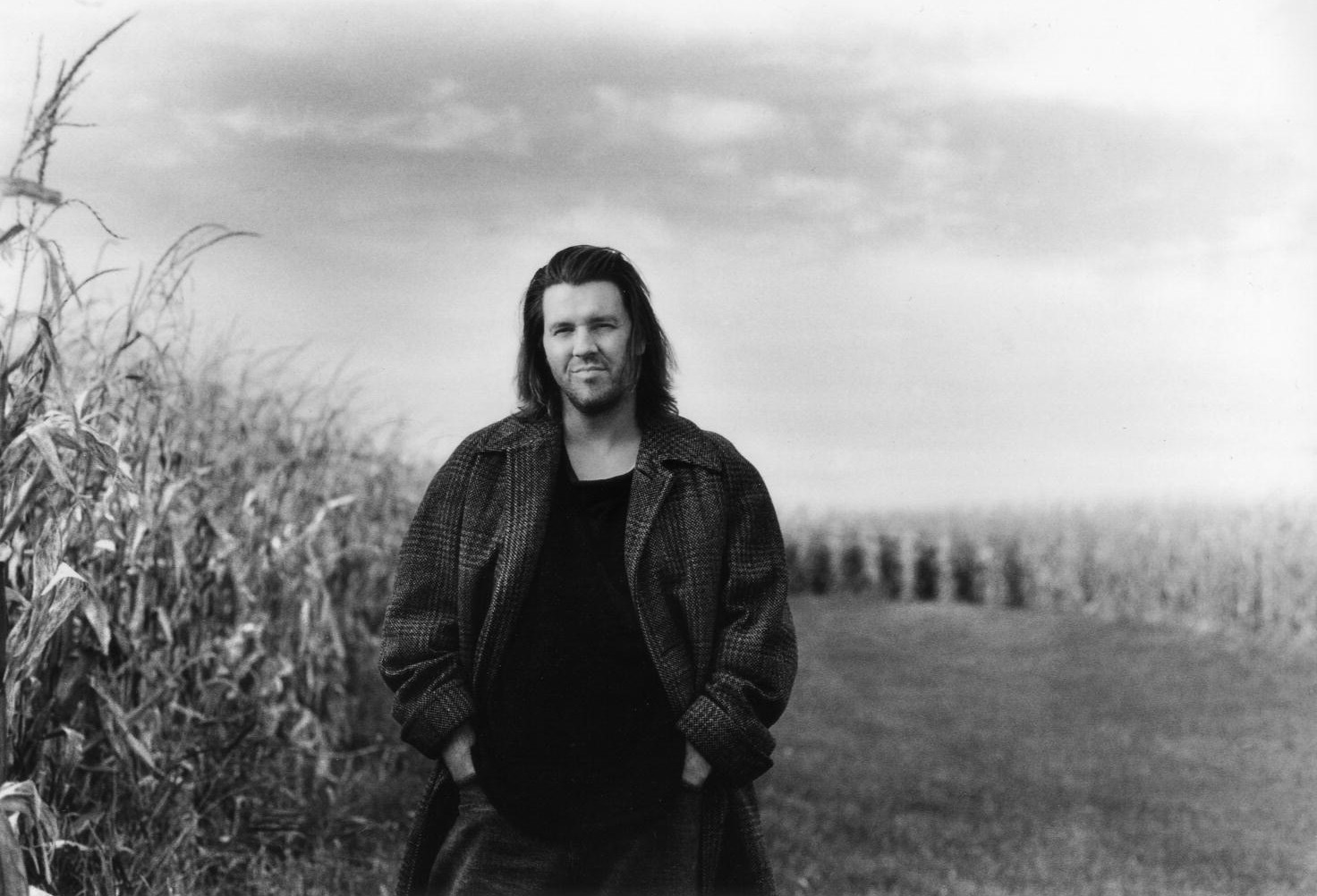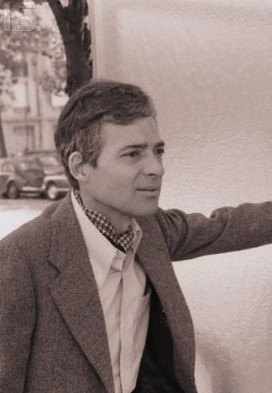Laruelle, François. General Theory of Victims. Translated by Jessie Hock and Alex Dubilet. Malden, MA: Polity Press, 2015. ISBN-10: 0745679617. Hardcover, paperback, e-book. 161 Pages.
There is a kind of “non-philosophical” eruption happening in so-called Continental philosophy. After a prodigious output for over three decades, François Laruelle is finally now garnering attention in Anglophone scholarship. Indeed, between the beginning of 2015 and the end of 2016 alone, we will have seen no less than the translation of six of his books, including General Theory of Victims, into English.
This is not to peddle Laruelle and non-philosophy (or non-standard philosophy) as “the next big thing” in theory. If anything, Laruelle has stridently resisted such a construction of his work, even insisting once in an interview that “Laruelle does not exist”[1] – a sentiment we can perhaps appreciate as a radicalization of Nietzsche’s imperative to “seek noughts.”[2] It is in this spirit that we should approach his work: Laruelle is not so much seeking philosophical disciples as he is trying to transform how theorists experience the act of philosophizing itself.
Victims is touted by its publishers on the back cover as the “most accessible expression” of Laruelle’s non-philosophy. And no doubt one should commend Hock and Dubilet for crafting a very readable translation of Laruelle’s notoriously difficult style of writing. But for those unfamiliar with the experience of non-philosophy, this slim little volume will hardly be a walk in the park of ethical theory. For despite the fact that Victims is peppered with household names and concepts familiar to those in the so-called “Continental” tradition—Kant, Heidegger, Levinas, Derrida, Deleuze, Badiou, immanence, the event, messianism, weak thought, etc.—Laruelle transposes all of this onto an alien landscape, as it were, in Victims.
Indeed, this motif of an alien landscape might prove a useful heuristic device for approaching Victims. For Laruelle’s Victims is not an attempt to offer a new philosophy of the victim (the victim philosophized represented as X, Y, or Z) but rather think according-to the victim, the one whom Laruelle calls the “Victim-in-person” (or even more generically, “Man-in-person”). In other words, Laruelle is—in a kind of inverted intensification of the Levinasian ethic—attempts here to craft a rigorously non-philosophical theory of the victim. It is in this non-representational sense that Laruelle can affirm that Man-in-person hails from the “Not-Where” and the “Not-When” (87). Man-in-person may be said to be a strictly “xenolocative” phenomenon for Laruelle.[3] Such a way of phrasing things is, of course, business as usual for non-philosophers. And anyone acquainted with this kind of thinking is more than familiar with such “utopian” (148) terrain. For those unacquainted, however, we offer a very quick and basic sketch of non-philosophy:
Laruelle’s projection has gone through various phases (five in all, thus far) over the past thirty-some years—he details of each which do not concern us here. But suffice to say that the general impetus through each of its phases derives from trying to formulate a theory of “philosophy” that is not itself philosophical, that is, is not simply a form of meta-philosophy. Indeed, it has long been Laruelle’s claim that every philosophy contains within itself its own “philosophy of philosophy” (meta-philosophy), which is a phrase synonymous with what he terms “auto-positionality.” Auto-positionality signifies that every philosophy legitimates itself through a “Philosophical Decision” (PD), which simultaneously posits the Real as X (God, Being, matter, the mathematical, etc.) and establishes definitive epistemic access to that posited Real. In this light, Laruelle’s theory of philosophy identifies the “Principle of Sufficient Philosophy” (PSP) as the heart every philosophy, which he suggests is even prior to the Principle of Sufficient Reason; for the PSP is the assumed belief that everything is philosophizable. This is the invariant or eidetic structure of philosophy according to Laruelle (in the Husserlian sense of the latter term).
One might object that the post-Kantian phenomenological tradition is nothing but one long meditation on the inaccessibility of the Real. But as Laruelle (radicalizing Fichte’s critique of transcendence, in a sense) contends, whether you know that you know the Real (ontotheological presence) or you know that you do not know the Real (meontotheological absence), either way you still retain the assumption of philosophy’s adequacy to know the status of the Real as such. Laruelle’s non-philosophical project thus deserves the name as such because he axiomatically refuses any PD that would determine the boundaries between the transcendental (faktum) and the empirical (datum), and/or the real and unreal.[4] Non-philosophy does not make a PD concerning what the Real is, or even that it is (except in the most rigorously formal sense in which any scientific enterprise has to presuppose the generic category of the Real in order to think about anything whatsoever).
Laruelle therefore gives up the onto-epistemic game of trying to represent the Real (the Real as X) altogether and instead attempts to think according-to the Real “in-the-last-instance.” By this Laruelle means that philosophy always comes too late, as it were, to the represent the Real to itself since all thought is immanent (to) or “in” the Real. But—and this is key—every representation of the Real is nonetheless an irreducible immanent effect (of) the Real itself, that is, thought is formally real-in-the-last-instance regardless of its content. The Real is thus the transcendental condition of thought but is itself radically foreclosed to thought, since the Real is indifferent to the PSP and every PD.
We can grasp, then, that every “world” (that is created by the PD) is unilaterally determined by the Real since thought is immanent (to) the Real but the Real is unaffected by every positing of a world by thought. In the parlance of Laruelle’s recent non-standard vocabulary, every thought-world is a quantum “superposition” (upon) the Real or a “clone” of the Real.[5] And we might say, therefore, that Laruelle takes Deleuze’s subversion of Platonism to its logical conclusion: non-philosophically, nothing is an imperfect copy of an eternal, transcendental form. Rather, everything is radically immanent to itself as a clone (of) the Real in-the-last-instance. In this way, Laruelle decidedly separates appearances from truth: every representation or thought (of) the Real, as an effect thereof, is—we might say—an appearance-without-truth (if “truth” is here understood as that which derives from a PD to posit the Real as X). And this is why Laruelle speaks of a thought-world, transformed by non-philosophy, as a kind of “philo-fiction.” There is no “mimetic rivalry” (29) at the heart of the non-philosophical project—only quantum philo-fictions in superposition vis-à-vis the Real.
It must be emphasized that the “non” in “non-philosophy”—as it has been affirmed by Laruelle and those practicing 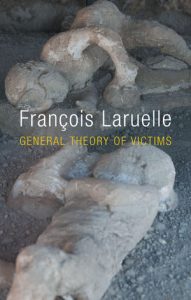 non-philosophy—is not the destruction or even destruktion of philosophy. Rather, non-philosophy relates to philosophy in the way that non-Euclidean geometry relates to the Euclidean geometry: the former does not negate the latter, but simply operates on its own set of axioms that make it other than Euclidean geometry. In the case of non-philosophy, given that it takes the Real (or “the One” as one of “the first names” of the Real) as the necessary transcendental condition of thought (the Real rigorously treated as generically formal and without content), the non-philosopher is free to interact with philosophy as “simple materials.” Instead of thinking of philosophies as some many representations of reality, one is no freed to treat each one of them as empirical effects (of) the Real—as philo-fictions that are unto themselves real-in-the-last-instance.
non-philosophy—is not the destruction or even destruktion of philosophy. Rather, non-philosophy relates to philosophy in the way that non-Euclidean geometry relates to the Euclidean geometry: the former does not negate the latter, but simply operates on its own set of axioms that make it other than Euclidean geometry. In the case of non-philosophy, given that it takes the Real (or “the One” as one of “the first names” of the Real) as the necessary transcendental condition of thought (the Real rigorously treated as generically formal and without content), the non-philosopher is free to interact with philosophy as “simple materials.” Instead of thinking of philosophies as some many representations of reality, one is no freed to treat each one of them as empirical effects (of) the Real—as philo-fictions that are unto themselves real-in-the-last-instance.
With this brief and broad overview ready-to-hand, we are better able to outline the basic trajectory of Laruelle’s specific application of non-philosophy to the problematic in Victims, that is, Man-in-person. Victims finds its impetus in a “xenolocative anthropology,” if we can put it that way, whose non-object is named Man-in-person. For Man-in-person is not identifiable with any posited subject or any philosophical anthropology. Why? A subject is always a product of a world, and a world is a product of a PD, and a PD is a product of the PSP. So every positing of the subject as X, Y, or Z is equally arbitrary from the purview of non-philosophy.
By contrast, Man-in-person is, as we used the term above, a clone of the Real, that is, an effect of the Real in-the-last-instance. And of virtue of “being-in-the-Real” (my non-philosophical inverted neologism of Heidegger, not Laruelle’s), Man-in-person is also foreclosed to knowledge. More specifically, and as Laruelle explains it, Man-in-person is foreclosed to knowledge in virtue of being an open vector in the generic, algebraic matrix of the Real. Parodying Badiou’s opening pages of Logics of Worlds, Laruelle declares, “there are only lived experiences and algebra, except that there is also, instead of their opposition, the algebraic objectivity of human lived experiences” (27). Typical of Laruelle’s quantum approach, he refuses to synthesize these two terms – the lived and algebraic – but holds them in superposition, that is, in irresolvable diegetic relation (that is, as “identical-in-the-last-instance” vis-à-vis the Real). Laruelle is, if nothing else, the master of non-dialectical theory.
This quantum superposition of the algebraic and the lived is why Laruelle can make the obvious but brilliant assertion that “[i]f there is a radical argument against racism, it is this: mankind is indeterminate” (xx). Though Laruelle does not here offer additional examples of how we could put this axiom of indeterminacy to ethical use, we can easily discern how it could be fruitfully applied, for instance, to issues of sexual, gender, non-human identity (cf. his reflections on animals, 102-05) or, really, any identity whatsoever.[6]
Laruelle, it should be emphasized here, is not simply reiterating social constructivist critiques of identity; for the indeterminacy of Man-in-person is not the product of a post-Kantian PD to posit the subject as Alterity (absence, process, nothingness, Other, etc.). Rather, Man-in-person’s indeterminacy is because Man-in-person is “being-in-the-Real,” that is, an effect of the Real in-the-last-instance.
Given this rigorously non-dialectical form of Laruelle’s ethics, we might even go so far as to say that Victims represents a non-philosophical inversion of Hegel’s “Lordship and Bondage”—the famous formulation of the master/slave dialectic in the Phenomenology. For Laruelle insists that any essentialized dialectical formulation—master/slave, oppressed/oppressor or criminal/victim (64-88)—is naught but a symptom of a transcendental hallucination, that is, as a manifestation of a PD. These dialectic formulations are the product of one who has confused the victim (who is the overdetermined product of philosophy) with Man-in-person. Man-in-person, by contrast, underdetermines via indeterminacy any essential identification as a victim in-the-last-instance.
Significantly, however, Man-in-person’s resistance to victimology is also precisely what allows Man-in-person to be identified as a victim in the first place! For, as Laruelle puts it, Man-in-Person’s foreclosure to knowledge signifies Man-in-person as a “weak force” (78-82). This does not denote a quantitative weakness vis-à-vis a strong force, but weakness in terms of being a simple vector of “non-action” that is not identifiable with the action of the worldly subject. Rather, Man-in-person, is a simple vector in the generic matrix.
Every philosophy of the victim (a “victomology”)[7] takes advantage of the weak form of Man-in-person. And so every victomology—as perpetuated especially by the “media-friendly” (médiatique), “embedded,” or “committed” intellectual—signifies a redoubling of the act of victimization: that a victim is first killed and then killed again in being memorialized, represented, as victim X, Y, or Z. Said differently, by thinking the victim as a “victim-in-the-world” (my neologism, not Laruelle’s), the Victim-in-person is killed a second time by the committed intellectual: first by the criminal, and then again insofar as the victim is inserted into an economy of representation—their victimization converted into investible forms of philosophical capital for the sake of, and perpetuation of, intellectualism (64-88): “as soon as philosophy thinks Man, it always kills him twice” (148).
But Man-in-person, as that which resists representation, is also that weak force that, finally, resists death or killability. As that which is radically indeterminate and foreclosed to knowledge, Man-in-person’s weakness is also Man-in-person’s ability for insurrection or resistance to reduction to victimhood as such. This insurrectional reality of Man-in-person is what Laruelle—building on his non-philosophical subversions of Christianity elsewhere in Future Christ (2010) and Christo-Fiction (2015)[8]—calls the “glorious body” of Man-in-person. For Laruelle, the resurrection (as symbolized by Christ) is a manifestation of the more general phenomenon of insurrection: the one who is “Arisen-in-person” (108-113). But why does the Victim-in-person have priority as the one arisen?
To paraphrase Laruelle’s argument, it only in through victimization (the superposition of the criminal-victim duality) that resurrection (the Future-in-person) becomes available as empirical materials for a general theory of victims. The status of Man-in-person as “prior-to-the-first or in-the-last-instance,” which are, in-the-final-determination, identical terms non-philosophically (9), only becomes theorizable through victimization. Man-in-person’s “superpositionality” becomes apparent, as it were, in and through the phenomena of victimization and resurrection. In other words, it is only through defeat that the undefeatability, the resurrectionability, of generic Man-in-person becomes discernible, which is why “victims are the ‘cornerstone’ of society” (130). The possibility of creating a just society goes in and through the victim—the one who can open up new possibilities for justice.
Both the fact that anyone can be a victim, and that Man-in-person can resist victimization as the Future-in-person, reveals the reduction of Man-in-person to victimhood as a transcendental hallucination. It demonstrates Man-in-person’s glorious body that is prior-to-the-first and therefore as the necessary (but non-sufficient) condition of future justice beyond the criminal/victim dualism. The resistance and the insurrection of Man-in-person thus reveals that criminal and victim, as a symptom of a PD, are not “the same” but instead identical-in-the-last-instance vis-à-vis the Real—a fact which breaks every cycle of victimization, vengeance, and essentialization of Man-in-person as either criminal or victim. As Laruelle puts it, “I am also the fragile Other or the subject-Stranger” (97).[9] Man-in-person, as a weak force, is always already both its possibility for victimization and for insurrection.
According to Laruelle, then, the “Victim-in-person” is thus never a “survivor”—the latter of whose symbolic status is a symptom of a PD (60)—but precisely a “Ordinary Messiah,” that is, the one who opens up future worlds, future utopias, future “philo-fictions” (xxi). It is worth noting here that Laruelle—insofar as places the resurrection at the heart of his inverted Christology—thereby positions himself against Badiou’s focus on St. Paul and Slavoj Žižek’s focus on the death of god dialectically. And in this way, Laruelle is aligned with Peter Sloterdijk, the latter of who also suggests that what is truly revolutionary thing about Christianity is the idea of resurrection (and not conversion, universalism, or crucifixion).[10]
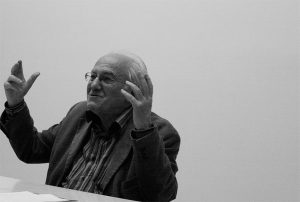 Man-in-person never appears “in” the world but, as a clone of the Real, that is, a kind of “given-without-givenness.”[11] In this sense, the worldly subject, the victim, is a given (of) Man-in-person without Man-in-person’s givenness as such. For this non-appearance, or given-without-givenness, (of) Man-in-person is synonymous with a xenoloactive indeterminacy, which is why Man-in-person can be superpositioned as both a oppressor or oppressed, criminal or victim (93). As a weak force, Man-in-person resists representation, and thereof is not infinitely ineffable (that is, a manifestation of Alterity or the apophatic) but is instead, as real-in-the-last-instance, “infinitely effable.”[12] And it is the infinite effability of Man-in-person that is what permits Man-in-person to be superpositioned as both criminal and victim in the first place. The infinite effability of Man-in-person is its ability to be victimmized and its insurrectional “futurity-in-person,” so to speak.
Man-in-person never appears “in” the world but, as a clone of the Real, that is, a kind of “given-without-givenness.”[11] In this sense, the worldly subject, the victim, is a given (of) Man-in-person without Man-in-person’s givenness as such. For this non-appearance, or given-without-givenness, (of) Man-in-person is synonymous with a xenoloactive indeterminacy, which is why Man-in-person can be superpositioned as both a oppressor or oppressed, criminal or victim (93). As a weak force, Man-in-person resists representation, and thereof is not infinitely ineffable (that is, a manifestation of Alterity or the apophatic) but is instead, as real-in-the-last-instance, “infinitely effable.”[12] And it is the infinite effability of Man-in-person that is what permits Man-in-person to be superpositioned as both criminal and victim in the first place. The infinite effability of Man-in-person is its ability to be victimmized and its insurrectional “futurity-in-person,” so to speak.
In light of insurrection, Laruelle calls for “generic intellectuals” (as opposed to media intellectuals). Generic intellectuals will no longer attempt to think the victim as subject X, Y, or Z but according to the Victim-in-person. In other words, instead of pitying the victim, the generic intellectual compassionately thinks Man-in-person in each instance as underdetermining any and all victimologies. And this unilaterally determines the intellectual under the non-philosophizable condition of Man-in-person, and not the other way around (which is symptom of the transcendental hallucination of thinking from the PSP). Instead, the generic intellectual, in thinking according-to Man-in-person, can be part of the process by which utopian futures become cloned into being.
Ultimately, and as evidenced by the terminological density of even this brief book review, Victims is no easy piece of theory. Of course, once one begins to pick up on the basic moves of the non-philosophical form (the Real, the generic, in-the-final-determination, cloning, etc.), it becomes easier to understand the value of its applications. But this takes time and patience. So in closing, we can only make a plea that though Laruelle’s theoretically language and concepts can be difficult to grasp, Victims represents a personally and politically challenging way of thinking about ethics, victimhood, and compassion. (The most beautiful and perhaps most readable section of the book concerns the difference between compassion and pity [45-9].)
Laruelle’s refusal to play into the hands of victimology may come off to some readers as terribly abstract and inapplicable to real life ethical dilemmas. But, when understood rightly, Victims represents perhaps one of the greatest sieges against ethical abstractions undertaken in our present age. For what Laurelle’s work ultimately demands are intellectuals who no longer worship at the altar of philosophy—with its delusions of self-sufficiency—but a form of thought that thinks compassionately according-to the Victim-in-person. The intellectual can no longer think “from above” with pity directed at a victim. Rather, a generic intellectual is the one who, insofar as they “clone” thought according-to the Victim-in-person, are engaged in a form of compassionate theory that is, finally, a form of radical political insurrection: resistance to death and the present order of things.
The generic intellectual is the one who is unilaterally determined by Man-in-person and the future possibility of justice, for justice “is a utopia or a philo-fiction, which has only as much of a future as Man-in-person itself” (xxi). What is the shape of such utopianism? We might say that Victims represents Laruelle’s call to a generic form of realized eschatological ethics.
John Matthew Allison is a graduate student at Princeton Theological Seminary. He anticipates future PhD work in the History of Religions. His interests include comparative mysticism, method and theory in religious studies, Buddhist philosophy, religious pluralism, anthropotechnics, non-philosophy, and speculative realism.
————————————————
[1] François Laruelle, “Non-philosophy, Weapon of Last Defence: an Interview with François Laruelle,” in Laruelle and Non-Philosophy, eds. John Mullarkey and Anthony Paul Smith (Edinburgh: Edinburgh UP: 2012): 238-251, 244.
[2] Friedrich Nietzsche, Twilights of the Idols and the Anti-Christ, trans. R.J. Hollingdale (New York: Penguin Books, 2003), 34.
[3] This is phrase borrowed from Peter Sloterdijk in God’s Zeal The Battle of the Three Monotheisms, trans. W. Hoban (Malden, MA: Polity 2009), 14.
[4] This refusal of the PD is, it should be noted, what Laruelle claims constitutes the generically scientific character of non-philosophy.
[5] See François Laruelle, Principles of Non-Philosophy, trans. Nicola Rubczak and Anthony Paul Smith (New York, Bloomsbury 2013) and Philosophie non-standard : générique, quantique, philo-fiction [Non-Standard Philosophy: Generic, Quantum, Philo-Fiction] (Paris, Kimé, 2010).
[6] See Katerina Kolozova, Cut of the Real: Subjectivity in Poststructrualist Philosophy (New York: Columbia UP, 2014) for a powerful and effective application of non-philosophy to questions of sexual and gender identity.
[7] Playing with theological vocabulary, Anthony Paul Smith suggests we might rightly refer to a victomology as a “victimadicy” in Laruelle: A Stranger Thought (Malden: Polity Press, 2016), 98; I would highly recommend Smith’s volume for anyone interested in learning more about Laruelle—it is the most accessible introduction to non-philosophy available in English.
[8] See François Laruelle, Future Christ: A Lesson in Heresy, trans. Anthony Paul Smith (New York, Continuum 2010) and Christo-Fiction: The Ruins of Athens and Jerusalem, trans. Robin Mackay (New York: Columbia University Press, 2015).
[9] There are resonances here with the work of Judith Butler, who has sought in recent years to build an ethic of solidarity on the mutual precarity of all of human-life. See Butler, Precarious Life: The Powers of Mourning and Violence (New York: Verso, 2004).
[10] On Sloterdijk and Žižek on the resurrection, see Peter Sloterdijk, “Is There a Way Out of the Crisis of Western Culture?” in Selected Exaggerations: Selected Exaggerations: Conversations and Interviews 1993-2012 (Malden, MA: Polity Press, 2016):156-64.
[11] François Laruelle, “A Summary of Non-Philosophy,” Pli 8 (1999): 138-48: 141.
[12] Rubczak and Smith, “Translator’s Introduction,” in Laruelle, Principles, xvii.
